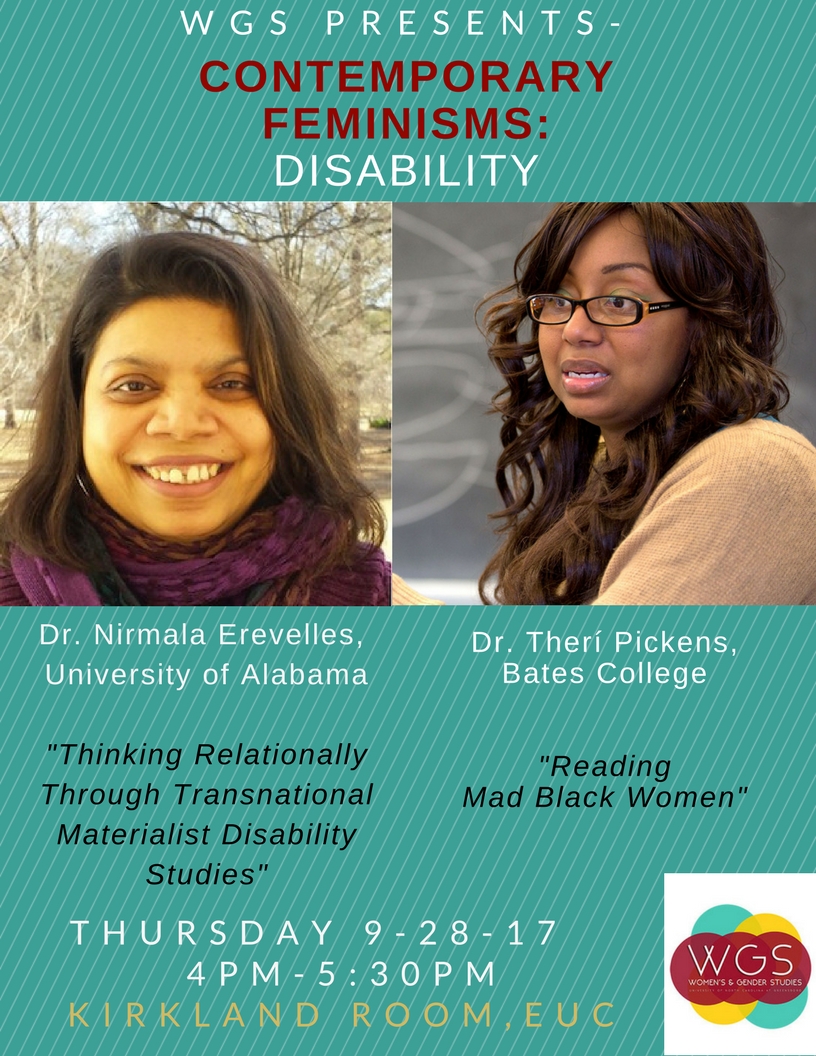
Posted on 10/17/2017
WGS would like to thank Dr. Nirmala Erevelles and Dr. Theri Pickens for speaking at our “Contemporary Feminisms: Disability” panel discussion September 28, 2017. We had an amazing turn out! Additionally, we would like to thank the UNCG faculty, students and community in attendance who support our efforts to raise awareness on matters, such as disability, often under-represented in current dialogues within academia.
Dr. Erevelles spoke on Transnational Materialist Feminist Disability Studies, arguing it “enables us to build coalitions that are accountable to intersectional difference.” She explored the intersections of race, gender, sexuality and disability using examples such as the transnational slave trade, reproductive injustice against incarcerated, Indigenous women, ableist immigration laws directed at Mexican immigrants and the economic violence against women on the global assembly line. “A transnational feminist disability studies perspective will force us to see that the embattled bodies of (disabled) (third world) women wear scars that speak of centuries of violence—representational, physiological, and material…refuses to pathologize disability, but instead regards disability as a historical category forged within the oppressive conditions of transnational capitalism witnesses to this violence.”
Dr. Pickens came with her own ideas on contemporary feminisms, sharing her wish to “teach us how to read and write about madness and blackness.” Realizing how we take for granted, “reading race, gender and disability,” she suggests “creating a dialogue among them and usefully entangling the dialogue they already create.” Her discussion centered around Octavia Butler’s Fledging, as Thickens suggests to the audience, “In thinking about how to read and write about blackness and madness, one must consider that both carry with them assumptions and consequences that organize a text.” Dr. Pickens ends stating, “By unsettling the trustworthiness of linear progressive time, black madness here requires that we not think of time as that which controls epistemology. It no longer tells us how we know what we know. Instead, it is controlled by epistemology. In other words, time means nothing unless wedded to an epistemology.”
Again, thank you to the event speakers, all the people who made the event possible behind the scenes, and all of the UNCG community who came out to support us!